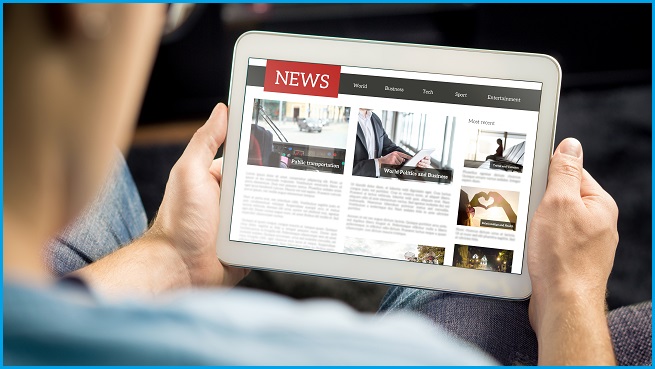The controversial News Media Bargaining Code passed both houses of parliament today following senate amendments made to appease Facebook.
Designed as a means to force digital platforms to pay news media organisations for content that appears on their platform – either as shared posts or through indexation – the legislation drew international attention last week when Facebook banned Australian news in protest.
After negotiations with the government, Facebook agreed to restore news in Australia in return for amendments to the bill which the senate made on Wednesday.
These changes will see the treasurer, when designating digital platforms that fall under the code, take into consideration whether a tech company has made “a significant contribution to the sustainability of the Australian news industry” such as by making agreements outside the code’s final-offer arbitration process.
Previously the treasurer only had to consider whether a “significant bargaining power imbalance” existed between digital platforms, like Facebook and Google, and the news media businesses.
The amendments also now require mediation – lasting no longer than two months – to take place if the media companies and tech giants can’t reach a bargaining agreement within the initial three-month notification period.
Part of the legislation that forced tech companies not to differentiate between news outlets designated by the code – for example by de-indexing or de-ranking media companies – was changed to make exempt media companies that have signed agreements with tech giants.
During debate over the amendments, Victorian senator Jane Hume, who introduced them to the senate, said it was preferable for tech to strike deals outside the code and that final-offer arbitration was “a last resort”.
“We expect the digital platforms to continue their efforts to enter into agreements with more news media businesses,” Hume said.
“They can do this outside of the code by putting a standard offer on the table which publishers can choose to accept or as a catalyst to reach a commercial agreement.”
In the lead up to the code becoming law, Google began making deals with major Australian commercial news companies Seven West Media, Nine, and News Corp to include them in its News Showcase product.
Then, as Facebook said it would reverse the news ban, Seven West announced it had signed a letter of intent to “provide news content” to Facebook.
Facebook bites back
In a post on Tuesday, Facebook’s VP of Global Affairs and former British politician Nick Clegg said the news media bargaining code proved there was a “fundamental misunderstanding” about the relationship Facebook has with news companies.
“Facebook would have been forced to pay potentially unlimited amounts of money to multi-national media conglomerates under an arbitration system that deliberately misdescribes the relationship between publishers and Facebook — without even so much as a guarantee that it is used to pay for journalism, let alone support smaller publishers,” Clegg said.
“It’s like forcing car makers to fund radio stations because people might listen to them in the car — and letting the stations set the price.”
Clegg said Facebook was “more than willing” to work alongside news publishers and that the company had already partnered with UK publishers at the launch of its Facebook News product in Britain last month.
He said Facebook was committing to spend US$1 billion worldwide over the next three years to “support the news industry”.
“The internet needs new rules that work for everyone, not just for big media corporations,” Clegg said.
“By updating internet regulation, we can preserve what’s best about it — the freedom of people to express themselves and entrepreneurs to build new things.
“New rules only work if they benefit more people, not protect the interests of a few.”
The News Media Bargaining Code was introduced following the Australian Competition and Consumer Commission’s (ACCC) Digital Platforms Inquiry – a lengthy investigation that recommend the government remedy a “distortionary” media market that has seen Facebook and Google dominate the share of Australian advertising spending.










